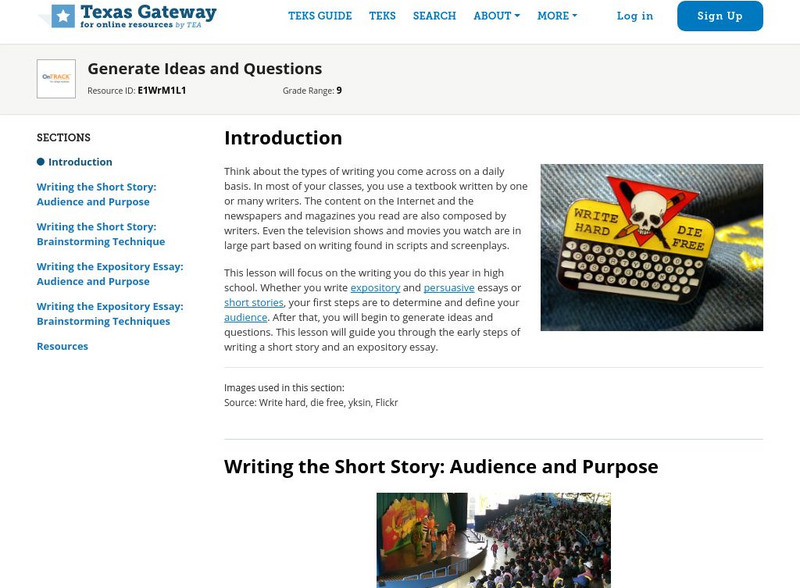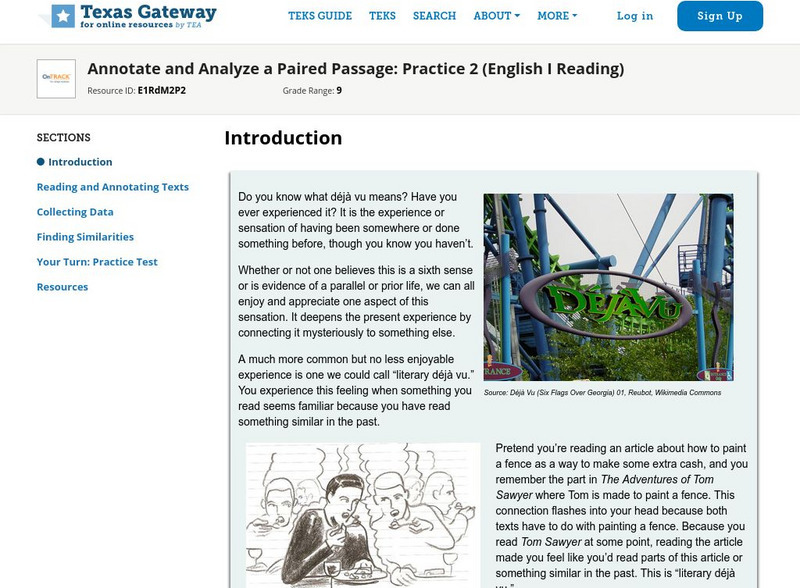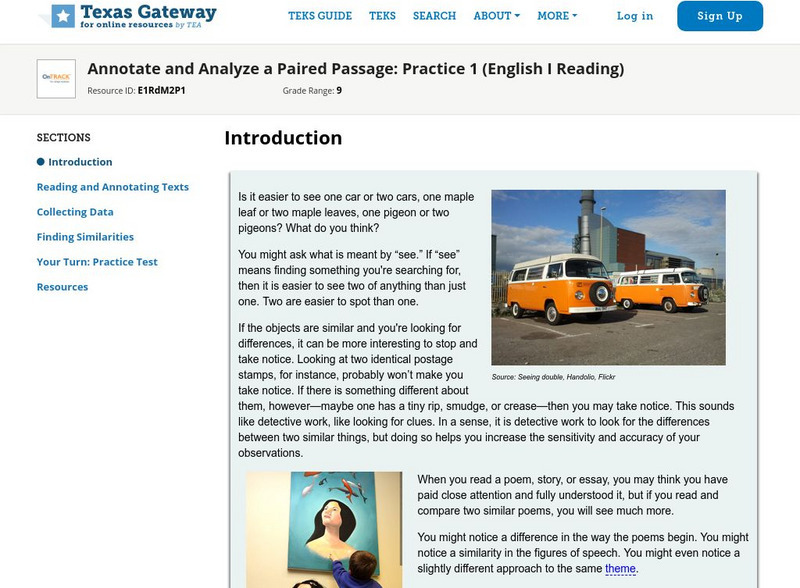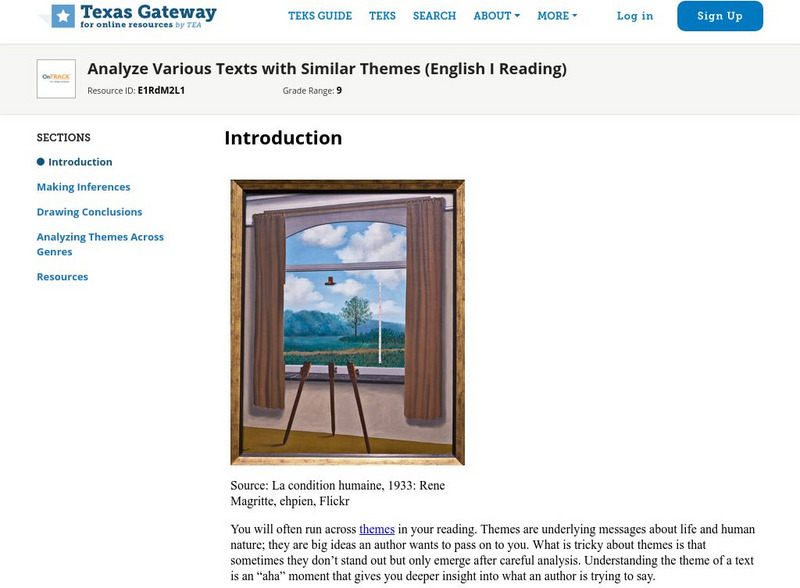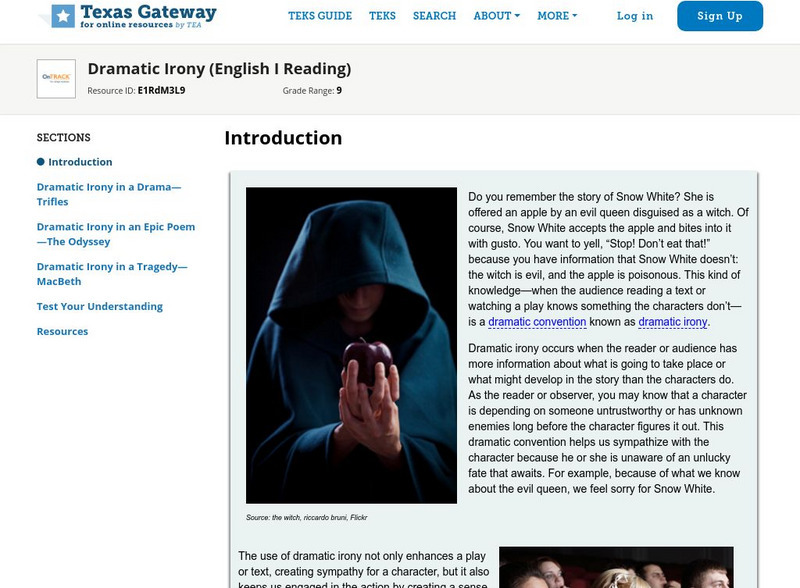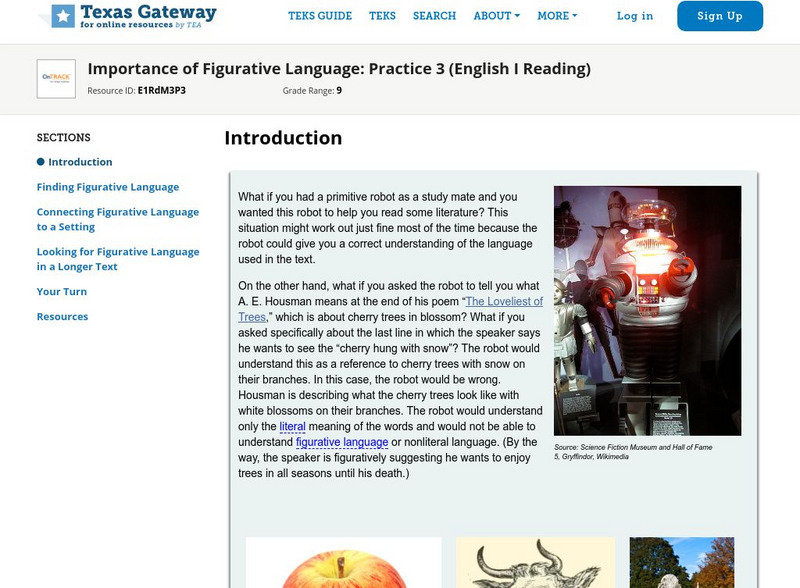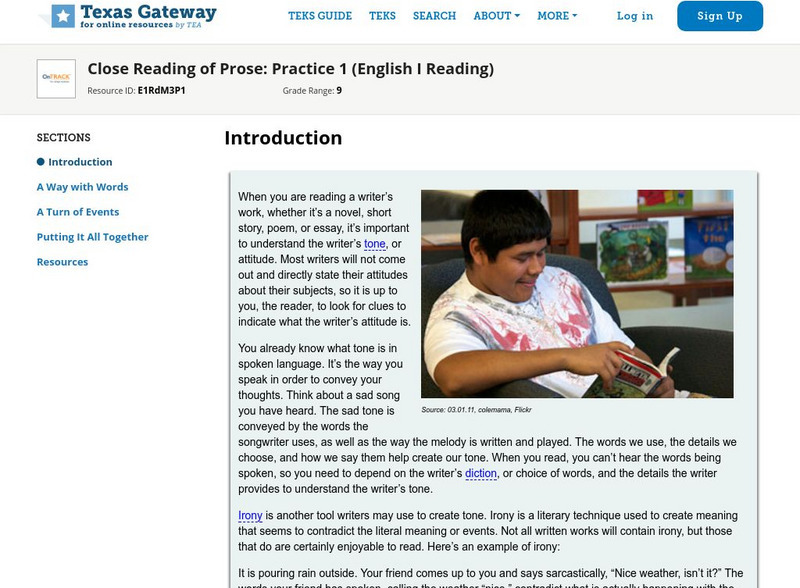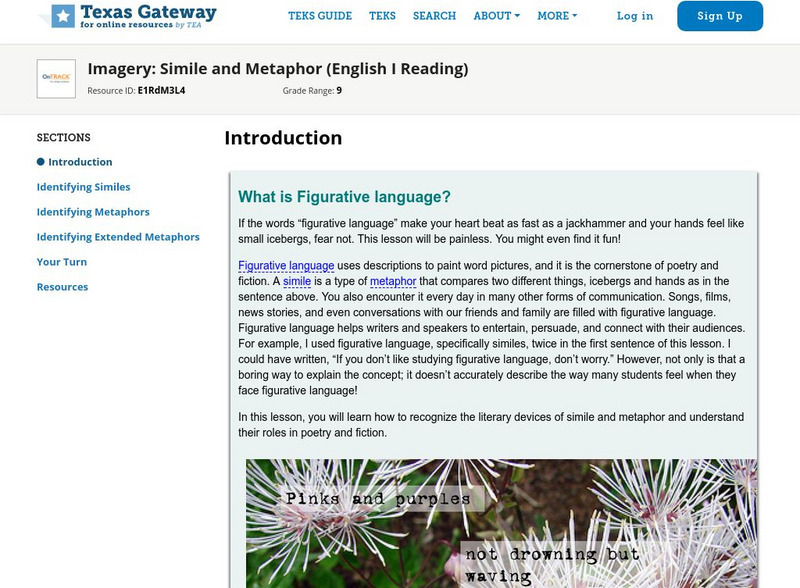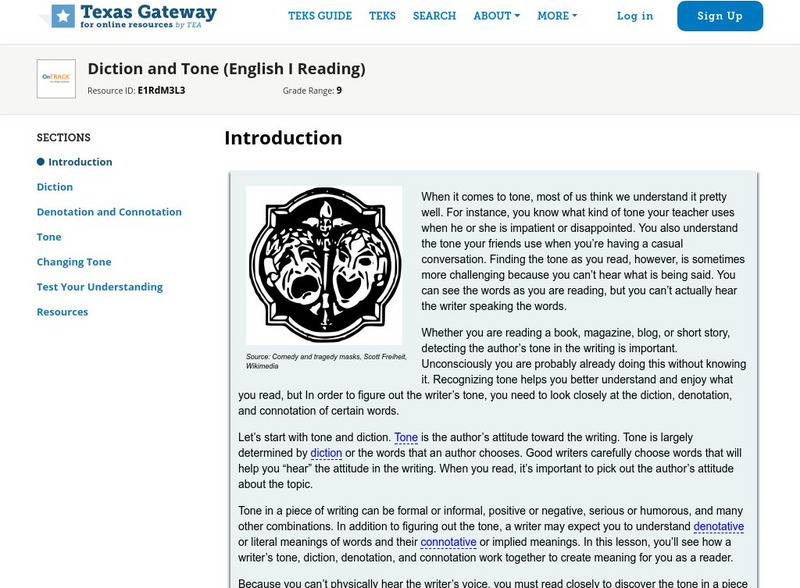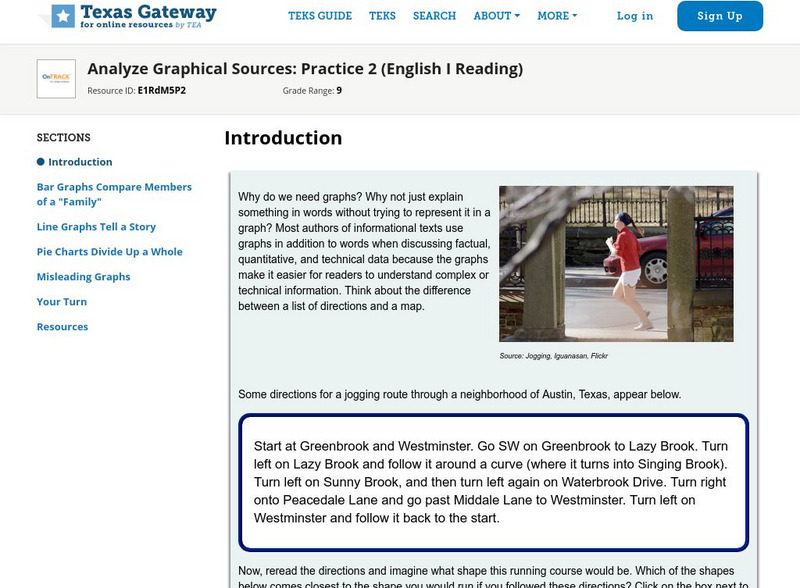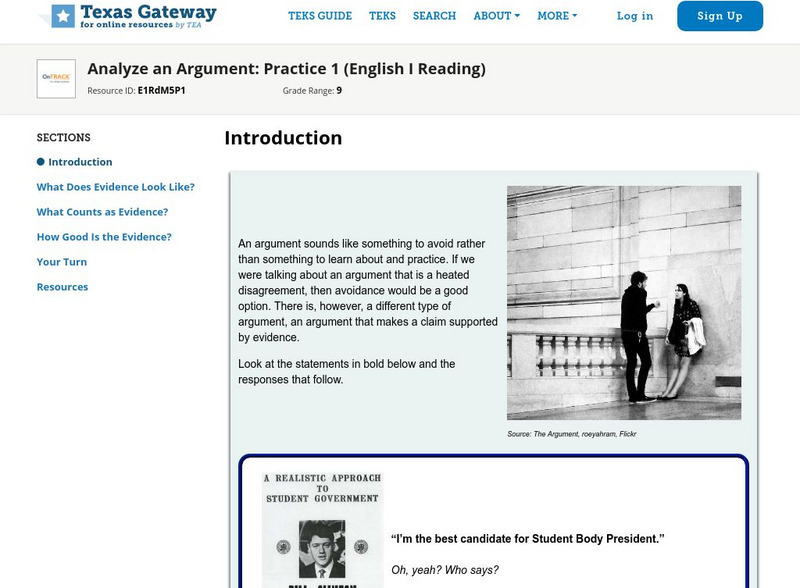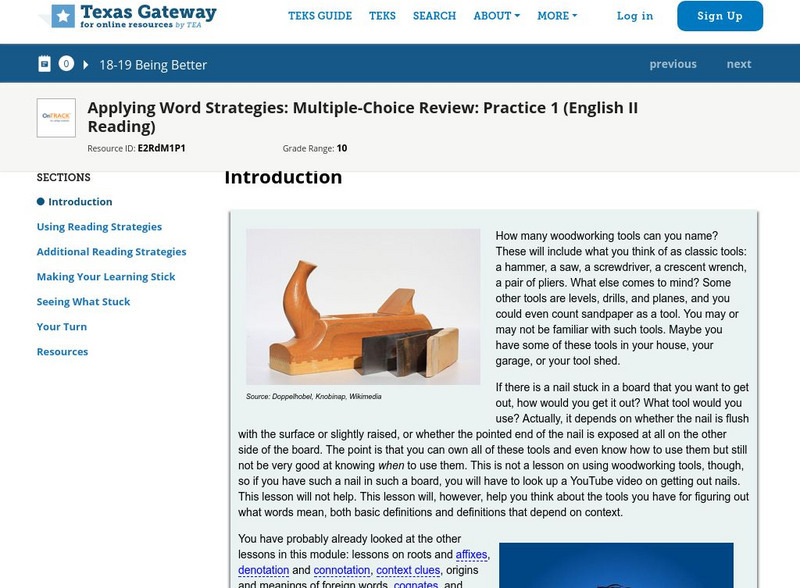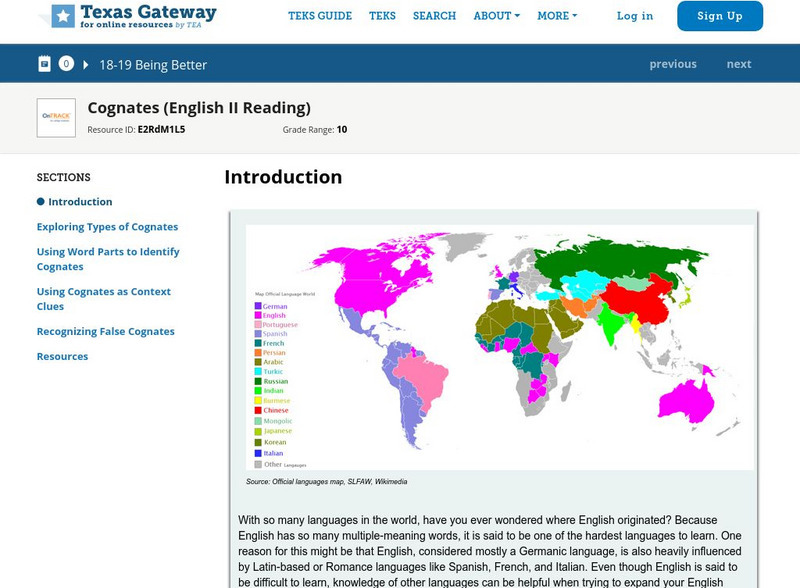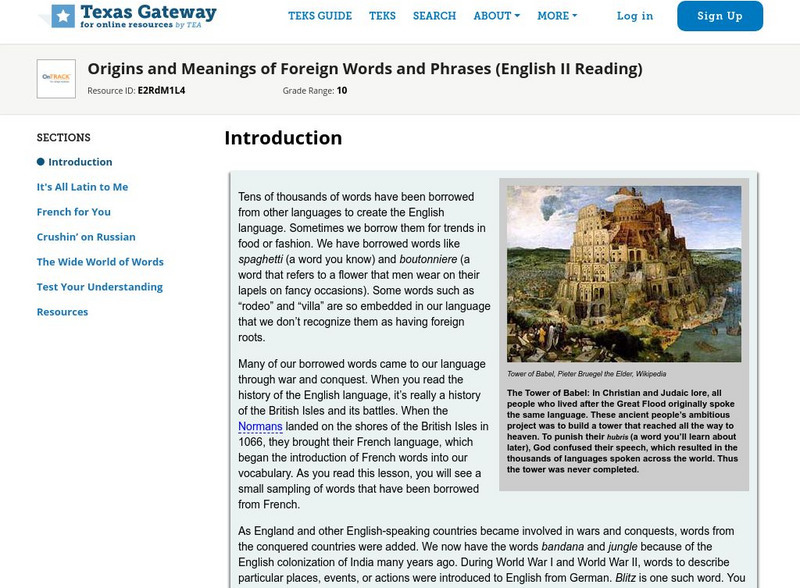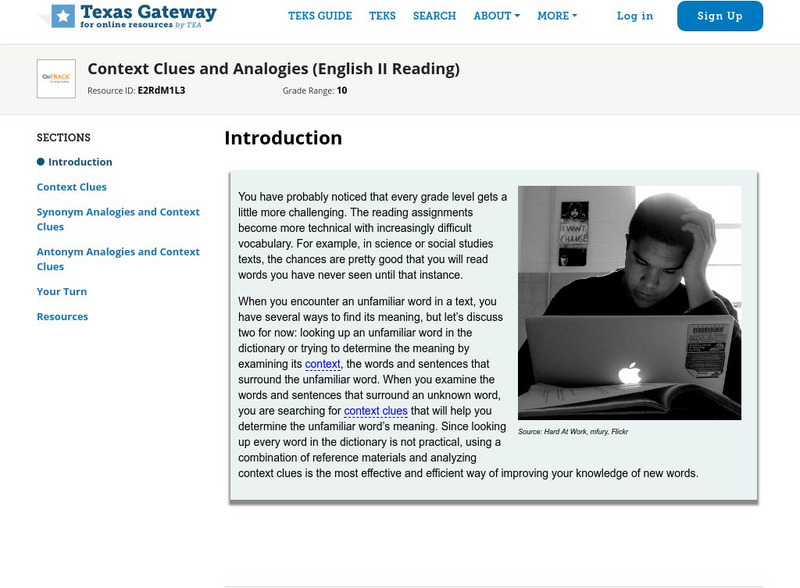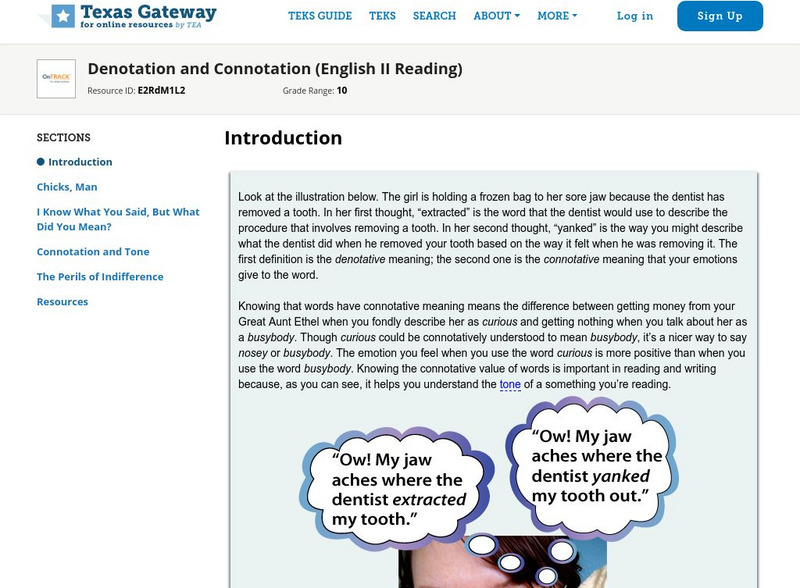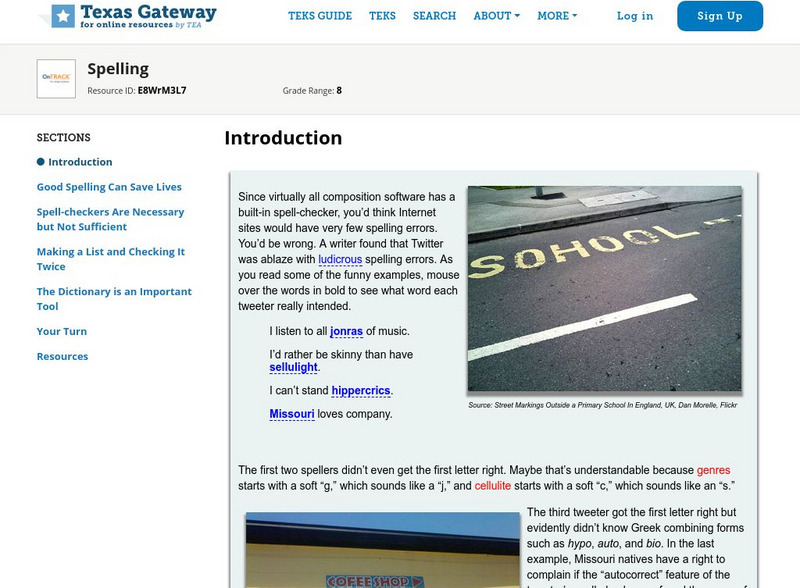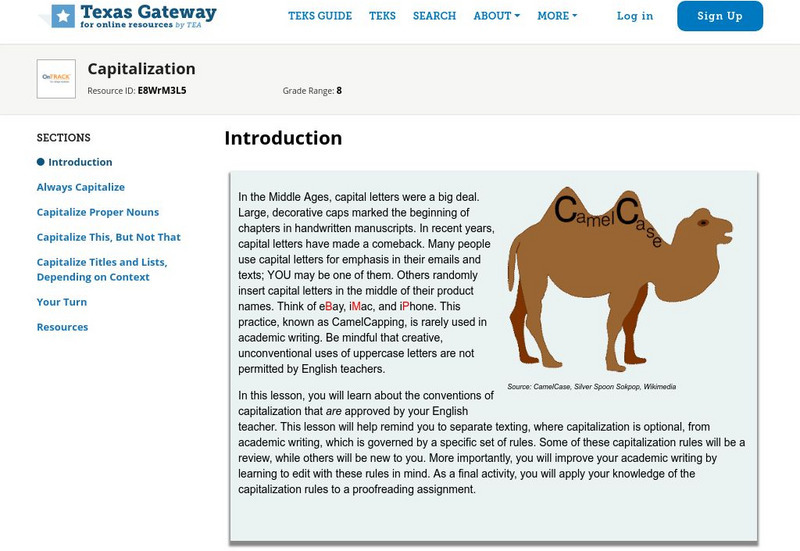Texas Education Agency
Texas Gateway: Generate Ideas and Questions
This lesson will focus on the writing you do in high school. Whether you write expository and persuasive essays or short stories, your first steps are to determine and define your audience. After that, you will begin to generate ideas...
Texas Education Agency
Texas Gateway: Annotate and Analyze a Paired Passage: Practice 2
[Accessible by TX Educators. Free Registration/Login Required] In this lesson, you will read and annotate a pair of texts to make inferences, draw conclusions, and synthesize ideas and details using textual evidence.
Texas Education Agency
Texas Gateway: Annotate and Analyze a Paired Passage: Practice 1
In this lesson, you will read and annotate a pair of texts to make inferences, draw conclusions, and synthesize ideas and details using textual evidence. You are going to look at two texts together to better understand them.
Texas Education Agency
Texas Gateway: Annotate for Meaning (English I Reading)
This lesson focuses on annotation including the tools and techniques for marking texts, annotating for meaning in a story, and adding marginal notations to your marked text.
Texas Education Agency
Texas Gateway: Analyze Various Texts With Similar Themes
In this lesson, you will make inferences and draw conclusions about similar themes across various genres by finding supporting evidence within each of the texts. This task will require you to use your analytical reading skills, and it...
Texas Education Agency
Texas Gateway: Analyze Literary Essays' Inclusion of Personal Opinions and Facts
In this lesson, you will learn how to identify and discuss the use of facts, personal examples, and ideas and how they are woven into a literary essay.
Texas Education Agency
Texas Gateway: Dramatic Irony (English I Reading)
This lesson focuses on dramatic irony, when the reader or audience has more information about what is going to take place or what might develop in the story than the characters do.
Texas Education Agency
Texas Gateway: Monologues and Soliloquies (English I Reading)
This lesson focuses on the dramatic convention called a soliloquy, when the speaker seems to be talking to himself, and monologue in which he is addressing the audience directly.
Texas Education Agency
Texas Gateway: Importance of Figurative Language: Practice 3 (English I Reading)
[Accessible by TX Educators. Free Registration/Login Required] In this lesson, you will sharpen your skill in reading figurative language and in connecting it with the historical and cultural settings in the text.
Texas Education Agency
Texas Gateway: Close Reading of Prose: Practice 1 (English I Reading)
As you read through the texts in this lesson, you will practice close reading strategies to help you understand a writer's tone. You'll be examining the writer's choice of diction, details, and irony to identify the writer's attitude.
Texas Education Agency
Texas Gateway: Irony, Sarcasm, Paradox (English I Reading)
[Accessible by TX Educators. Free Registration/Login Required] In this lesson, you will learn to identify and explain the purposes of irony and paradox in poetry. Both of these poetic devices are ways of saying one thing and meaning...
Texas Education Agency
Texas Gateway: Imagery: Simile and Metaphor (English I Reading)
[Accessible by TX Educators. Free Registration/Login Required] In this lesson, you will learn how to recognize the literary devices of simile and metaphor and understand their roles in poetry and fiction.
Texas Education Agency
Texas Gateway: Diction and Tone (English I Reading)
In this lesson, you'll see how a writer's tone, diction, denotation, and connotation work together to create meaning for you as a reader.
Texas Education Agency
Texas Gateway: Analyze Graphical Sources: Practice 2 (English I Reading)
You will look at each of these types of graphs: bar graph, line graph, pie charts, as you work your way through the lesson.
Texas Education Agency
Texas Gateway: Analyze an Argument: Practice 1 (English I Reading)
In this lesson, you are going to practice analyzing the evidence that supports or opposes an argument. You are also going to learn to analyze the quality, relevance, and credibility of the evidence so you can decide whether to accept the...
Texas Education Agency
Texas Gateway: Applying Word Strategies: Multiple Choice Review: Practice 1
Lessons on roots and affixes, denotation and connotation, context clues, origins and meanings of foreign words, cognates, and reference materials help determine word meanings. These lessons told you HOW to use these word discovery tools....
Texas Education Agency
Texas Gateway: Cognates (English Ii Reading)
In this lesson, you will focus on English and Spanish cognates. You will learn tips for identifying cognates, (words from other languages that have similar spellings, pronunciations, and meanings) and for using cognates to improve your...
Texas Education Agency
Texas Gateway: Origins & Meanings of Foreign Words & Phrases: English Ii Reading
In this lesson, you will be introduced to selective lists of words. These words can help enrich your language, deepen your understanding of what you read, and broaden your sense of the world.
Texas Education Agency
Texas Gateway: Context Clues and Analogies (English Ii Reading)
[Accessible by TX Educators. Free Registration/Login Required] This lesson focuses on strategies for using context clues and analogies to determine the meaning of words, sentences, and paragraphs.
Texas Education Agency
Texas Gateway: Denotation and Connotation (English Ii Reading)
This lesson is about how words can have emotional connections for readers. Connotation and denotation are a part of language, and knowing about them can help you understand not only the author's purpose, but also the author's attitude...
Texas Education Agency
Texas Gateway: Reading Like a Writer: Text Types
This site offers four downloadable videos: 1) Major text types commonly used across content areas; 2) Reading like a Writer, Charting 1; 3) Reading like a Writer, Charting 2; 4) Reading like a Writer, Charting 3. It also offers handouts.
Texas Education Agency
Texas Gateway: Spelling
In this lesson, you'll be reminded why spelling is important; a three-step strategy to follow when you edit your written work or the work of your peers; when to rely on the spell-checker and when to override it with your own good...
Texas Education Agency
Texas Gateway: Punctuation
Punctuation is the point of this lesson. You'll learn to put the right dots and squiggles in the appropriate places in your writing. You'll review the conventions of punctuation used in academic English. Then you will apply what you...
Texas Education Agency
Texas Gateway: Capitalization
In this lesson, you will learn about the conventions of capitalization. This lesson will help remind you to separate texting, where capitalization is optional, from academic writing, which is governed by a specific set of rules.


